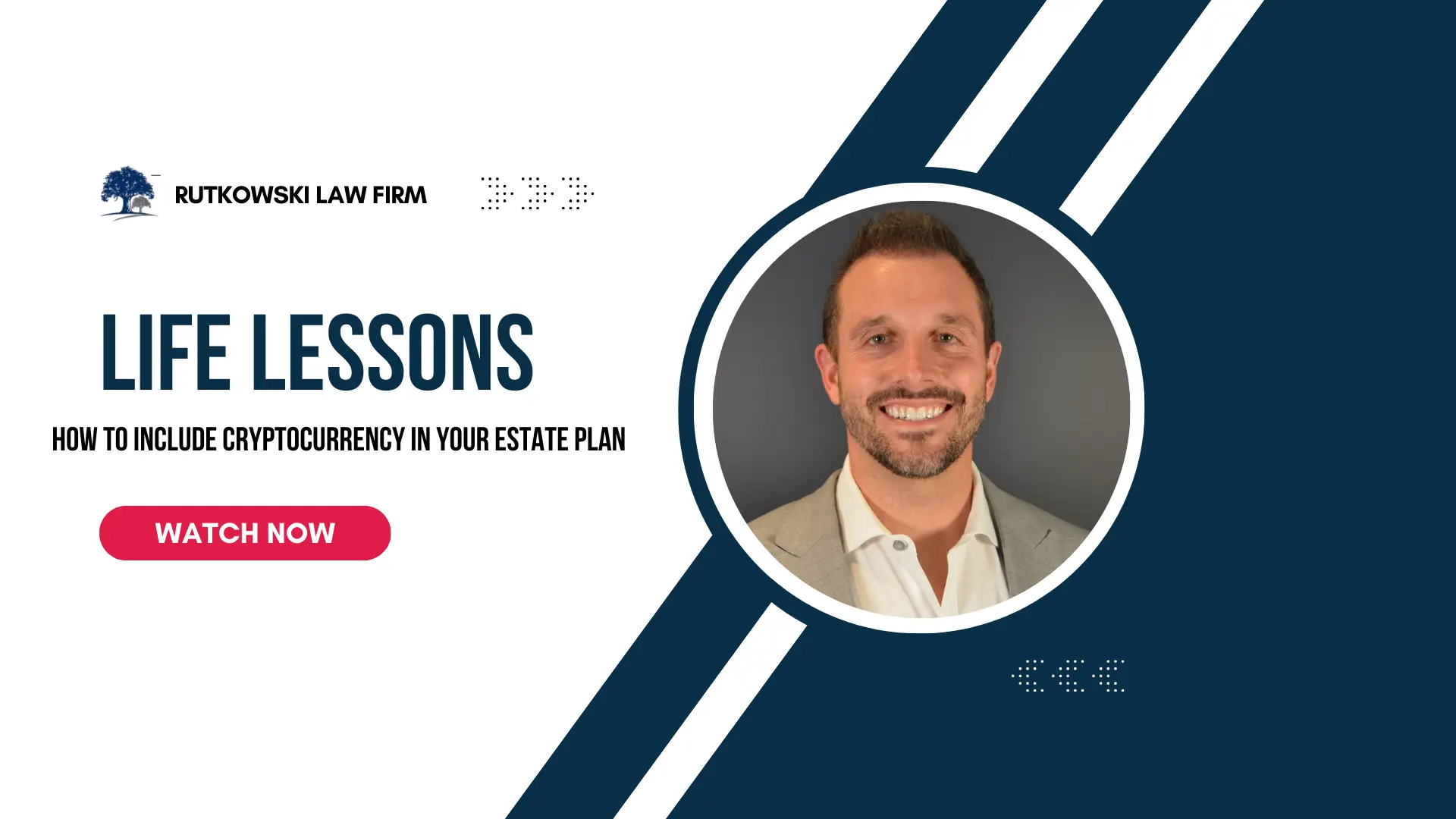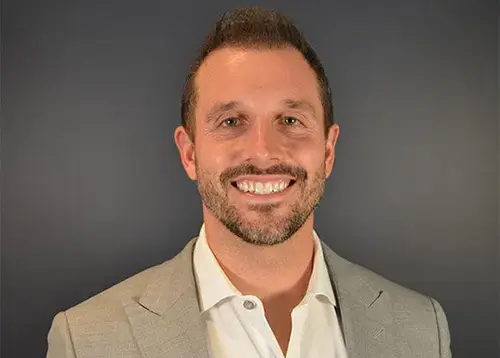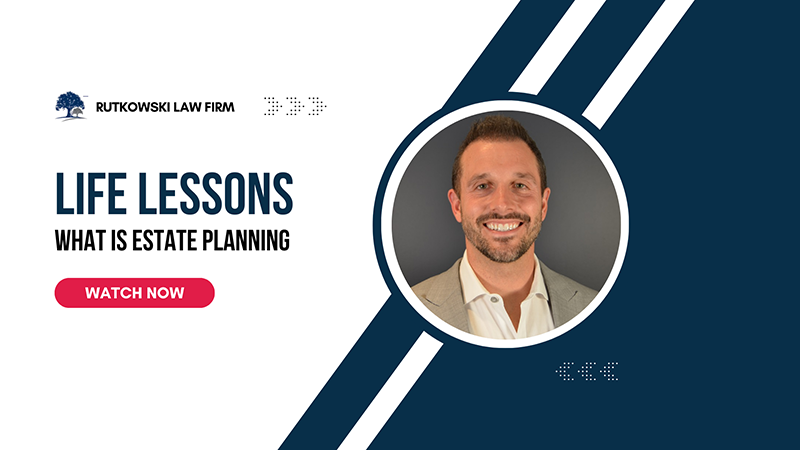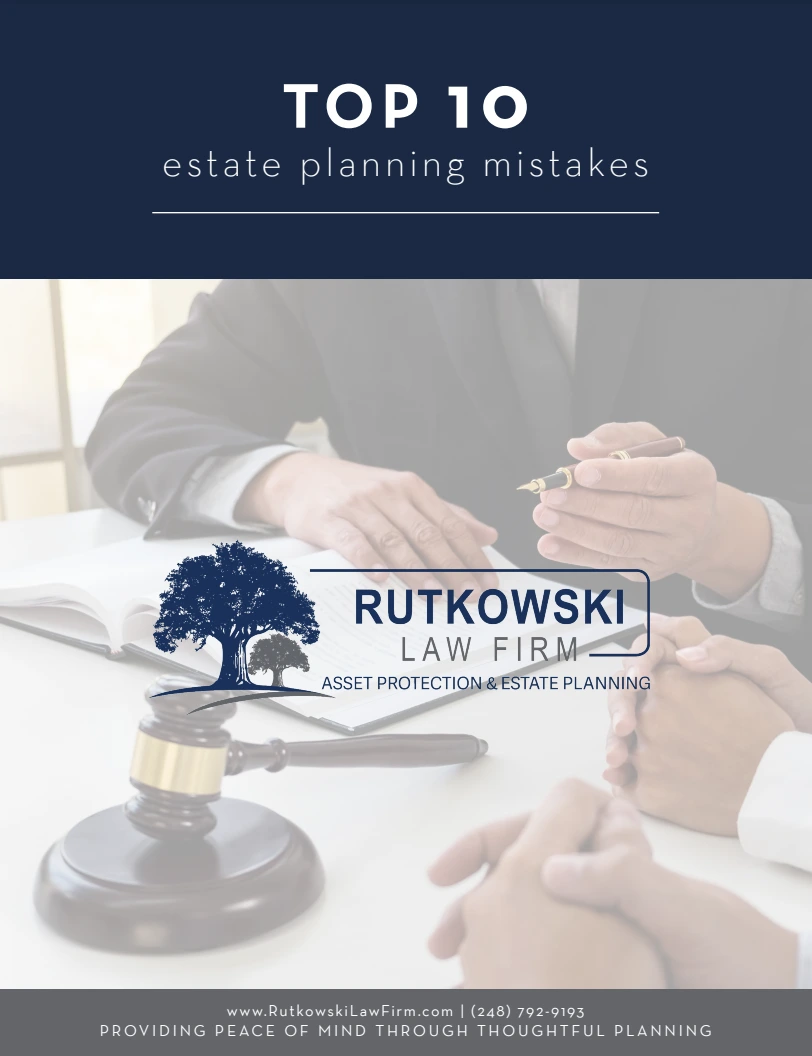Overview
When it comes to protecting your legacy, understanding the probate process is crucial. In this conversation, Michael Rutkowski, estate planning attorney at Rutkowski Law Firm, explains what probate is, why so many families try to avoid it, and the lengthy, expensive, and emotionally taxing process it can become. Whether you're planning ahead or already navigating probate, this overview sheds light on what to expect and how estate planning can help you avoid unnecessary hurdles.
Key Takeaways:
- Probate is a court-supervised process required when a person dies without proper estate planning tools like a trust or beneficiary designations.
- Assets titled solely in an individual’s name (e.g., a home, bank account, or retirement account) will likely have to go through probate if no planning has been done.
- The probate process is time-consuming and costly, often taking 9–18 months and costing 5–10% (or more) of the estate's value.
- During probate, a notice to creditors must be posted, opening a mandatory 4-month claim window.
- Family conflict often arises during probate because all interested parties can contest the distribution of assets.
- Without a trust, heirs must wait for the court's permission before receiving any inheritance, increasing the risk of delay, cost, and family disputes.
Full Transcript
Welcome to the Rutkowski Law Firm. We continue to unpack estate planning and the importance of getting out in front when it comes to passing down your legacy. Today, with me, I have Michael Rutkowski, who is an estate planning attorney, who's going to continue to walk us through the process.
So Michael, let's talk about the probate system.
We touched on it in our very first video, when we mentioned what estate planning is and why it's important. We scratched the surface on really what happens if you don't have an estate plan and somebody passes away, and what that process is in terms of what you have to go through to unlock those assets.
So start us from the beginning. This is a big topic in estate planning. A lot of families are trying to avoid probate.
What probate is: Probate is the court in your local county where you passed away. There are a couple rules about which county you would go to, but they would administer the estate if there are no beneficiary designations, no trust, no tools in place—no estate plan in place—that would avoid probate.
How do you end up in probate?
If there’s an asset that is in your name personally—like a checking account in your name personally—that doesn’t have a joint with rights of survivorship (for example, you and a spouse), if your spouse is still living and you pass away, they would automatically be able to control the account, and it would not go through probate.
But if there's an asset, like a home, a bank account, or a retirement account, that is in your name personally, with no beneficiary designations, not in a trust, and you pass away, it takes a court order to move that account from your name to maybe your kids, or whoever it's going to go to.
And with no plan in place, it's going to be subject to intestate succession. Every state has its own rules about who's going to get what. (We’re going to cover that whole thing in another video.)
Why do people want to avoid probate?
As we talked about in the last video, it's time-consuming and expensive. It typically costs between 5–10% of the value of the estate. Do some quick math in your head—it’s expensive. It takes anywhere between 9 and 18 months.
Here’s what happens in the probate process:
Once you discover there's an asset you can't get at because it's frozen, you’ll try to go to the bank and get access to it. They’ll say, "Nope, that person passed away. The account is frozen. You’ve got to go to probate."
You go to probate. You do all the filings. You can tackle this yourself, although I swear they make it complicated so that attorneys have to get involved. But I do know some people who have successfully navigated the probate process.
Here’s what happens:
- You make the filing.
- You have to post notice to creditors.
- This opens up a four-month window allowing the world to say they have a claim on the estate—maybe for unpaid bills, a mortgage, or whatever.
- Everyone has to let the estate know within that window whether they have a claim.
- You automatically have to wait out that four-month period before you can distribute anything.
Under a trust, you could distribute immediately. But through probate, you're waiting.
During that time, you also have to send a Notice to Interested Parties, which is essentially a letter to every single family member in your family tree saying, "Hey, Uncle Bob passed away, and if you feel like you deserve some of his estate, come to court on date."
(There would be no court on July 4, but you get what I'm saying.)
Everyone comes in and says why they deserve some of it—maybe they cut the grass, checked the mail. Everyone comes out of the woodwork.
This is where fighting happens.
Because it's going through the probate process, everyone gets a say about why they deserve something. I’ve seen families that just never speak again.
A real unspoken downside of probate: family dynamics absolutely change—and it's heartbreaking.
How long does it take?
You’re looking at a process that takes about two years—and that’s if no one's fighting about anything.
If people start fighting over who gets what and how it all works out, now we all have lawyers, and that 5–10% cost can jump up to 20–50%.
I’ve seen some really, really high fees in the probate process.
So why plan ahead?
Usually, families coming to us who have personal experience with probate say, "I never want to go through that again."
Maybe you're here already and don't know where to start—and that's how you found this video.



